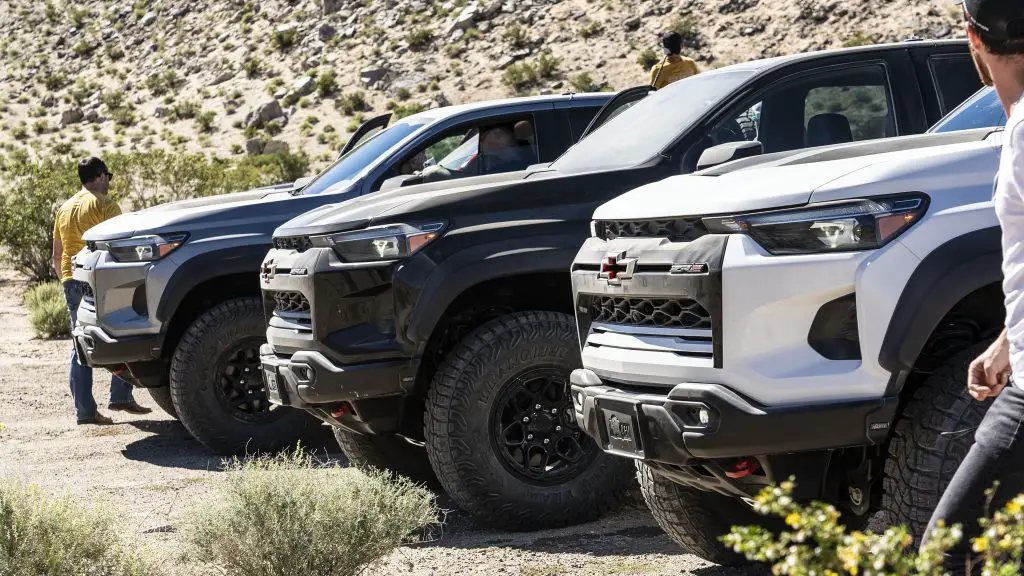The stop-sale order on the 2024 Chevrolet Colorado and GMC Canyon announced this week seems resolved, with trucks now shipping out to dealerships.
General Motors recently announced a temporary halt in the sales of its 2024 Chevrolet Colorado and GMC Canyon mid-size pickups, a move first reported us here by GM-Trucks.com. The stop-sale order was issued to address intermittent software quality issues identified during GM’s rigorous validation process. This decision underscored GM’s commitment to product quality and customer satisfaction, ensuring that all vehicles meet the company’s high standards before reaching consumers.
The software issue, which did not affect the 2023 models of Colorado or Canyon already on dealer lots or with customers, was promptly identified and rectified by GM’s engineering team. The fix has been implemented in the production line, and vehicles have started shipping to dealers as of Monday, with GM expressing confidence that the hold will be lifted shortly, allowing deliveries to customers to commence without further delay.

This proactive measure by GM highlights the automotive industry’s increasing reliance on sophisticated software systems in modern vehicles, which, while enhancing functionality and user experience, also introduces new challenges in vehicle validation and quality assurance. GM’s swift response to the software glitch reflects the company’s agility and dedication to maintaining the trust of its customers and upholding its reputation for reliability.
Interestingly, this is not the first time GM has faced software-related challenges in recent months. A similar issue led to a temporary halt in the sales of the Chevrolet Blazer EV, indicating a broader trend of teething problems as automakers navigate the complexities of integrating advanced technologies into their vehicles. GM CEO Mary Barra has acknowledged these challenges, noting that the company is undergoing a learning curve as it transitions to more software-centric vehicle systems. GM has since revamped its software development and validation processes to prevent such issues from recurring.
The stop-sale order has not impacted production at the Wentzville Assembly Plant in Missouri, where the affected pickups are manufactured.
Vehicles that were in storage awaiting the software fix will undergo a thorough cleaning and validation process before being dispatched to dealers.

